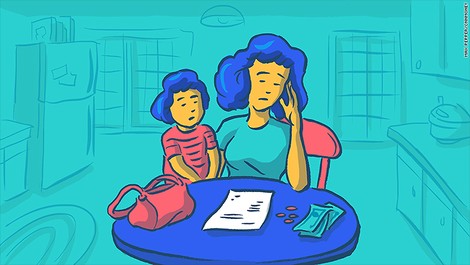Your podcast discovery platform
Curious minds select the most fascinating podcasts from around the world. Discover hand-piqd audio recommendations on your favorite topics.

piqer for: Boom and bust Global finds
I am a Dutch journalist, writer and photographer and cover topics such as human rights, poverty, migration, environmental issues, culture and business. I’m currently based in The Hague, The Netherlands, and frequently travel to other parts of the world. I have also lived in Tunisia, Egypt, Kuwait and Dubai.
My work has been published by Al Jazeera English, BBC, The Atlantic's CityLab, Vice, Deutsche Welle, Middle East Eye, The Sydney Morning Herald, and many Dutch and Belgian publications.
I hold an MA in Arabic Languages and Cultures from Radboud University Nijmegen and a post-Master degree in Journalism from Erasmus University Rotterdam. What I love most about my work is the opportunities I get to ask loads of questions. Email: [email protected]
Lighten Women’s Unpaid Workload
A new UN report estimates women do 2.6 times the amount of unpaid care and domestic work that men do, writes Julia Carpenter. “Childcare, cooking and cleaning, even things like picking kids up from school or taking elderly parents to the doctor.”
While this is probably not unexpected, it still surprises me. Why are there hardly any couples that share these tasks equally? Why do most people find this normal?
The "second shift" of unpaid work at home also means that women have less time to grow their careers and have less time for leisure activities, like exercising and playing games.
Brigid Schulte, director of the Better Life Lab at New America: "When you expect women to do all that unpaid work, they don't have the energy or the bandwidth to do that deep, concentrated work in the way that men do. So that's robbing women of the ability to be innovators."
The article continues to mention ways to lighten the unpaid workload women disproportionately bear. “First, companies and countries can institute family leave or flexible policies that help shift the cultural norms that keep men in the office and women in the home.”
Here in the Netherlands many mothers don’t do paid work because childcare is so expensive. And in many cases, (for some reason) men work fulltime and women part-time. Of course, this means women do more of the care and domestic work.
“Second, families can discuss how this affects them on an individual level.”
I can recommend the system my partner and I use to everyone. We’ve divided the days of the week that we care for our daughter equally since her birth. One week he does the shopping and cooking, and I clean up and wash, and the next week it’s the other way around.
This may sound rigid and inflexible to some (it’s not, we can always swap days), but I’m sure it would save many couples a lot of fighting. I believe that better relationships and more equality means happier women AND men (and children) AND more female presidents, CEOs and inventors.
